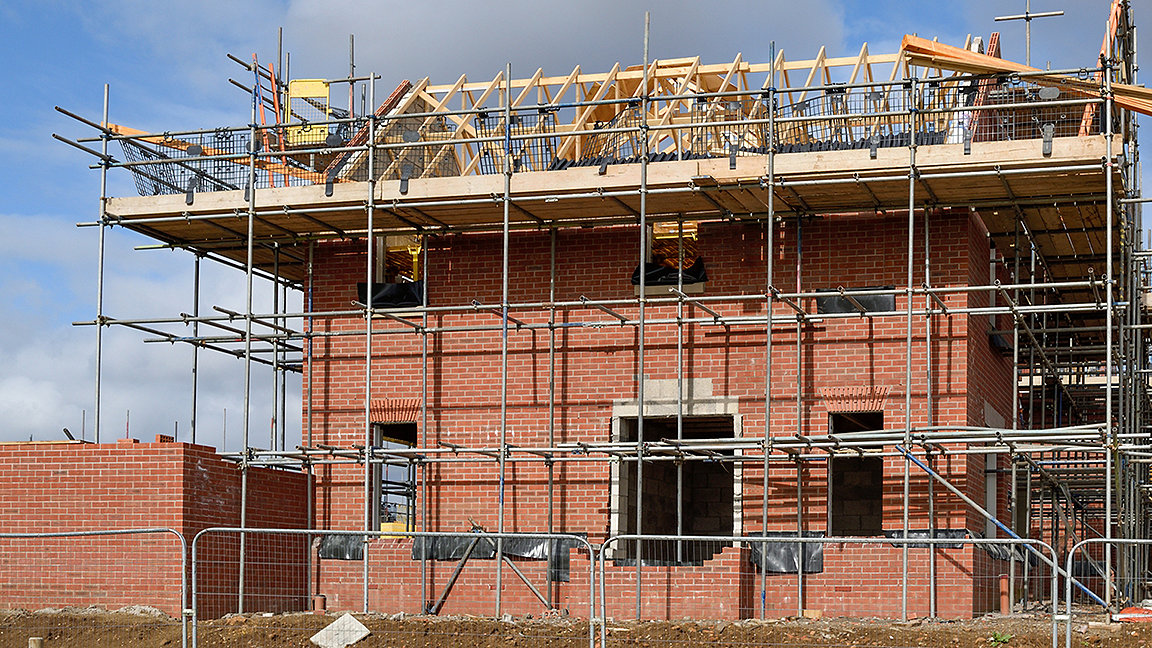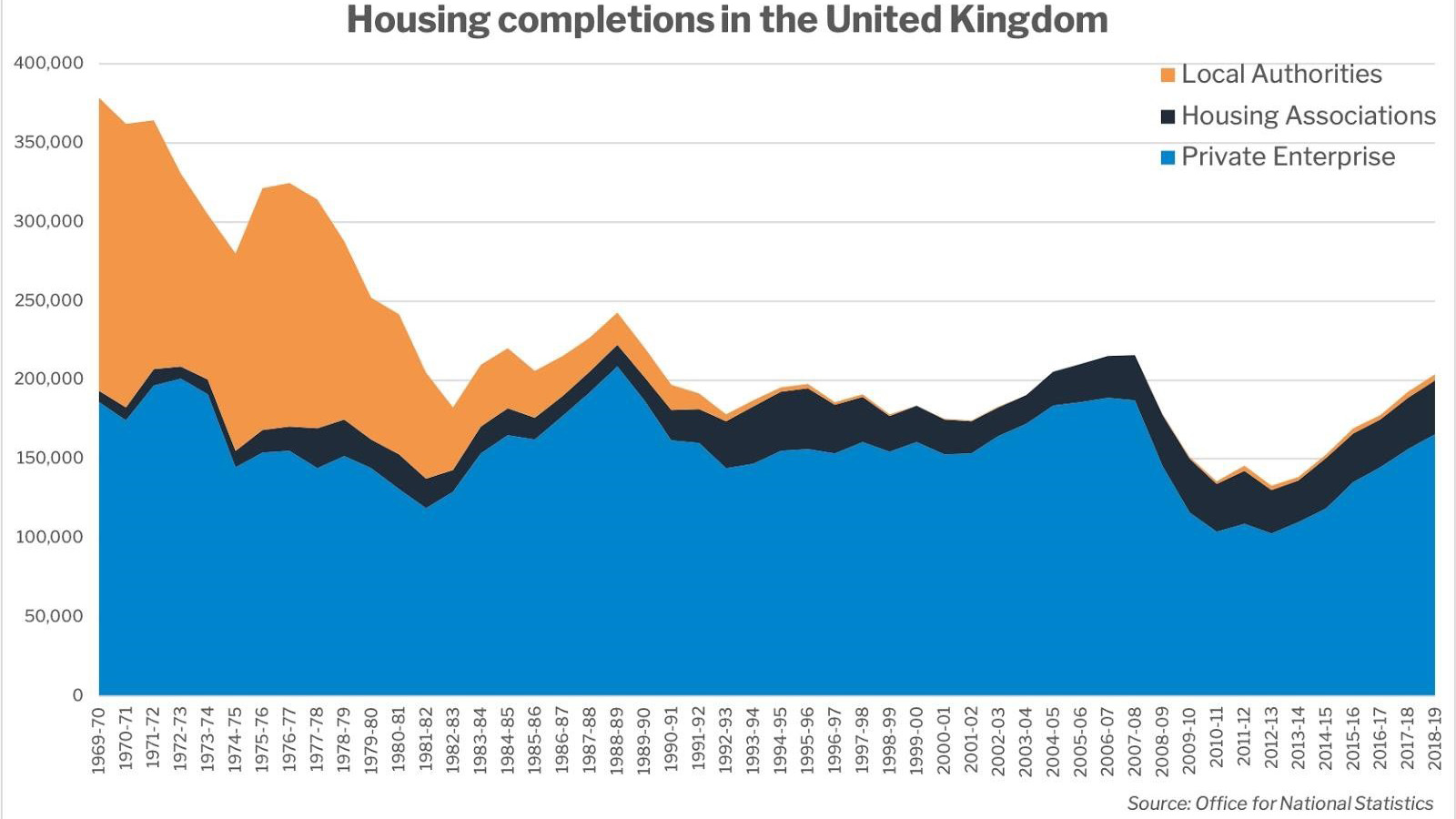
RenKap has focused on the UK housing crisis, specifically the lack of development capacity from local authorities, housing associations and SMEs. For the past 50 years, the UK has failed to meet housing needs and the backlog of homes now exceeds 4m. The dysfunction of the housing market can be measured by massive waiting lists, high costs, the rise of Generation Rent, and the fact that each year we are only building 60% of the housing we need.
To meet the current demand, 340,000 new homes are needed each year. Although the spread of COVID-19 has had a huge impact on residential developments, not enough was being done even before the pandemic, with only 180,000 new homes being built annually. Which other industry has such a large and constant gap between supply and demand? It's clear the market is broken and the existing business models are no longer working.
'Which other industry has such a large constant gap between supply and demand? It's clear the market is broken'
Overreliance on the private sector
It wasn't always like this. In the 1970s, housing was being built in the UK at a rate that exceeded the current seemingly unachievable target of 300,000 homes a year. This was largely because both the private and public sector were providing new homes at scale; in 1970/71, for instance, the public sector completed 49.5% of the 362,230 homes built.
But following government funding cuts, public-sector housebuilding has fallen significantly in the past 50 years, dropping to just 4,010 homes built in 2019. Consequently, we have become overreliant on the private sector to plug the gap – and as it has not, house prices have shot up.

Consolidating the supply
Now, 50 years on, the private sector dominates the UK housing market, and the nation's top ten largest housebuilders account for around 50% of all new homes. SMEs are an integral part of the housing market, but over the past 30 years 65% of small building firms have ceased trading because they couldn't compete with the large companies or access suitable sites.
The make-up of the private-sector housebuilding market also affects the types of sites coming forward for development. Major private-sector builders tend to focus on developing the largest possible sites, because they offer the scale needed for viability. They are not interested in the many small sites that, combined, could plug the housing gap.
The increasing focus on large sites and the reduction in SMEs also makes it harder for the public sector to procure and build homes on their smaller plots. Many of these sites tend to be considered inefficient or unviable and are ignored or forgotten. At RenKap, we believe that these are only inefficient or unviable for the current business models and, as a start-up, we are focusing on the lack of development capacity among local authorities, housing association and SMEs.
Housing inequalities exposed
We see neglected brownfield sites as a huge opportunity. Such small- and medium-sized public-sector land could make up a substantial chunk of the housing market if it weren't excluded by current business models. A recent study from CPRE found that there's enough underused land available in the UK to provide more than 1m homes – sufficient to cover the yearly deficit of 160,000 more than six times.
The other significant thing about this market is that, as sites are developed, other developments reach the end of their life cycle and themselves become brownfield sites ready to be redeveloped. Given the obvious need for more affordable housing, the ongoing COVID-19 pandemic has laid bare inequalities across the UK. People from all over the country have been disproportionately affected by the spread of the virus based on their housing situation, particularly if they live in overcrowded accommodation or intergenerational households.
The national lockdowns have emphasised the pressing need for more quality housing at social rent levels, and the public sector could play a vital role in providing these homes. Now more than ever, the UK needs a way to support its broader social and economic outcomes by boosting public provision of genuinely affordable, sustainable and quality housing.
RenKap platform
We want to transform the future of housing provision by introducing a digital means for any developer – from the public or private sector – to boost their in-house development capacity instantly and build affordable homes at scale. In the way that Uber links customers and drivers, RenKap's platform connects resource-constrained landowners to vetted suppliers at each stage of the development process.
Through us, clients can bring forward previously unviable sites and support economic recovery across the country. As a result, we have received funding from HM Land Registry, Ordnance Survey and Innovate UK.
- identify all the land they own quickly and in one place
- procure, tender and aggregate site investigation surveys and data at a click of a button
- access key feasibility data instantly at an early stage, including a policy-compliant accommodation schedule, build costs and sales and rental values
- tender, procure and manage the full design and planning process on one platform
- aggregate sites and procure work from modular manufacturers and SME housebuilders.
The purpose is to simplify property development and increase efficiencies. For example, our Automated Site Investigation facility has reduced the in-house time that it takes to tender, manage and analyse site investigation surveys from between four and six weeks to less than an hour. This has reduced clients' resource requirements by more than 90%, while giving them access to better data to help reduce risks and abortive costs.
So far, Automated Site Investigation has received 100% repeat business from early-adopter housing associations and local authorities, including Raven Housing Trust, Cambridge City Council and Richmond Housing Partnership.
Our aspiration is to allow any large landowner to be able to become a developer through our platform. We want to shift power over housebuilding back to public-sector landowners, while opening up opportunities to suppliers throughout the development life cycle.
